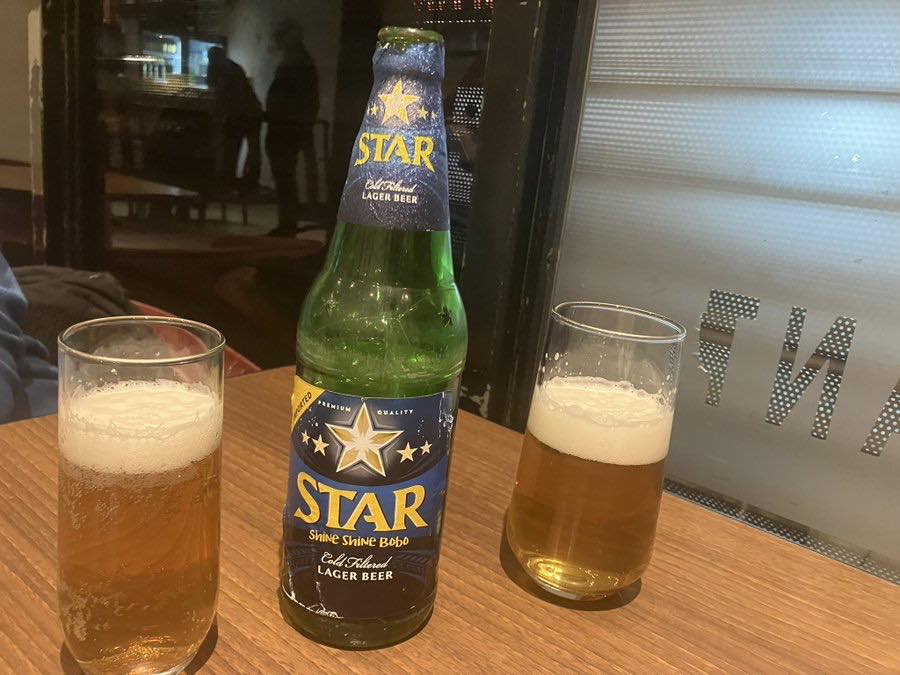Nigerian Breweries made over 1 trillion in revenue last year selling beer in Nigeria.
In a country often defined by its contradictions, a compelling story of resilience and opportunity quietly unfolds — and few corporate entities embody it better than Nigerian Breweries. Against all odds — economic volatility, insecurity, and political dysfunction — the beer giant recorded an eye-popping revenue of over ₦1 trillion last year.
Even more remarkable? More than 60% of this massive figure came from a region perpetually on the brink: Nigeria’s Southeast.
Insecurity, political instability, the now ritualistic Monday sit-at-home protests championed by separatist elements — none of these have dulled the thirst for life, for community, and for that celebratory clink of beer bottles that have long defined the social fabric of Southeastern Nigeria.
Yet, the story of Nigerian Breweries in the Southeast is about more than just alcohol sales. It is a microcosm of Nigeria’s maddening complexity — a country where perennial dysfunction coexists with outsized economic returns.
It is also a personal reflection for many of us who, despite the chaos, continue to choose Nigeria — who continue to bet on this battered but still breathing giant.
YOU MAY READ
UBA Posts Record ₦766.5bn Profit in 2024: A New Milestone in African Banking
When Nigerian Breweries released their financials for 2024, analysts were astounded. ₦1 trillion in gross revenue. In a year marred by inflation, FX shortages, political uncertainty, and security nightmares, the company had defied gravity.
But the real jaw-dropper was the regional breakdown: the Southeast — comprising Abia, Anambra, Ebonyi, Enugu, and Imo states — was by far the company’s most profitable region, contributing over 60% of the total sales.
To put that into perspective, the Southeast, with just about 10% of Nigeria’s land mass and less than 20% of its population, drinks more than half of the beer produced by the largest brewing company in the country.
That is not a fluke. It is a cultural, economic, and psychological phenomenon.
The Igbo people, who dominate the Southeast, have a deeply ingrained culture of celebration. Every success, no matter how small — a child’s admission into university, a new business launch, a homecoming from abroad — is marked with elaborate festivities. And what is a Nigerian party without crates of beer flowing freely?
In a region where political promises are often broken and state infrastructure is unreliable, social gatherings remain one of the few constants people can depend on. These gatherings are not just for leisure; they are expressions of community, survival, and identity.
As insecurity, especially the dreaded sit-at-home orders every Monday, gnawed at daily life, many still found solace in weekend gatherings — weddings, burial ceremonies, chieftaincy title events — and beer was always at the center.
YOU MAY READ
African Development Bank to Mobilise $2.2 Billion for Special Agro-Processing Zones in 28 Nigerian States
Despite the disruptions, Southeasterners are some of the most entrepreneurial people in Nigeria. The region boasts a disproportionately high number of small and medium-sized businesses, traders, artisans, and industrialists. These economic activities, though often informal, generate disposable income — income that finds its way into the social economy, where beer sales thrive.
It would be disingenuous to pretend the Monday sit-at-home phenomenon hasn’t taken a toll.
Introduced in protest of Nnamdi Kanu’s detention, the sit-at-home order was supposed to be a temporary symbolic action. But over time, it morphed into a monstrous weekly shutdown of the economy, enforced by armed groups with chilling brutality.
Markets shut down, transportation ground to a halt, schools closed, and economic losses ran into billions of naira weekly. Businesses, including breweries and distributors, bled.
Nigerian Breweries has not been spared. Logistics disruptions mean higher transportation costs, increased security risks, and lower volumes on certain days. Monday, traditionally a strong day for restocking bars and shops, has become a dead day.
And yet, despite these disruptions, the Southeast remains their biggest market.
Why? Because five lost Mondays don’t erase seven other vibrant days. Because the spirit of trade, celebration, and resilience outweighs fear and hardship.
Nigerian Breweries is not retreating. Far from it. They are doubling down, expanding distribution networks, engaging local partners, and investing in marketing campaigns targeted at Southeastern consumers.
They are betting — wisely, in my view — that the Southeast will stabilize sooner than later.
Zoom out from the Southeast and look at the broader canvas: Nigeria itself.
It is often said that Nigeria is a paradox — a country where everything is broken and yet nothing fully collapses. Where incompetence and corruption coexist with spectacular resilience and innovation.
Nowhere is this paradox clearer than in the business environment.
Nigeria offers some of the highest returns on investment anywhere in the world.
Think about it:
- Banking margins that make European and American banks look like charities.
- Telecom companies raking in billions from a still largely underpenetrated market.
- Fast-moving consumer goods companies (like Nigerian Breweries) reporting profits even in double-digit inflation environments.
- Real estate prices in Lagos appreciating even amidst urban chaos.
In many sectors, a business that would yield 5-10% profit margins elsewhere easily pulls 20-30% in Nigeria — if you can survive the dysfunction.
With a median age of 18 years, Nigeria’s population is young, dynamic, and aspirational. Despite the poverty, Nigerians spend a huge percentage of their income on entertainment, fashion, luxury goods, and yes — alcohol.
This is a demographic dividend that businesses ignore at their peril.
And yet, the Nigerian story cannot be told without acknowledging the current disaster in Aso Rock.
President Bola Ahmed Tinubu, barely a year into his tenure, has presided over some of the worst economic mismanagement in recent history. Inflation is over 35%, the naira has lost more than 70% of its value, and insecurity remains rampant.
Policy inconsistencies, crony capitalism, and blatant incompetence have defined his government so far.
Tinubu is not the leader Nigeria needs. That much is painfully clear.
And yet, in a cruel twist of Nigerian reality, the country refuses to collapse. It limps along. It improvises. It innovates. It fights.
If you bet on Nigeria today, you are not betting because of Tinubu.
You are betting in spite of Tinubu.
For many Nigerians, especially those with the skills and means to migrate, the temptation to “japa” (relocate abroad) is overwhelming. And who can blame them?
Canada, the U.K., the U.S. — these countries offer stability, security, predictability.
Nigeria offers chaos. Hardship. Betrayal by those in power.
And yet, some of us stay back. Some of us continue to bet on this broken, beautiful country.
Why?
YOU MAY READ
Flourishing Businesses in a Challenging Economy: The Recession-Proof Sectors of Nigeria
Because, for all its dysfunction, Nigeria rewards the bold.
Entrepreneurs who can navigate the madness often find opportunities unimaginable elsewhere:
- A tech startup that becomes a unicorn in five years.
- A small logistics company that grows into a regional behemoth because roads are bad and deliveries are needed.
- A local brewer that captures millions in market share because taste preferences are fiercely local.
Where else in the world can you start a barbing salon and become a multi-millionaire in three years? Where else can a roadside mechanic send his kids to private university?
Nowhere. Only here.
Nigerian Breweries’ story in the Southeast is not just a business case study.
It is a metaphor for Nigeria itself.
A region battered but unbowed. A market disrupted but undefeated. A people besieged but still bubbling with life.
Despite sit-at-homes, despite insecurity, despite dysfunctional governance, the beer still flows, the parties still rock, and the cash registers still ring.
The same is true of Nigeria as a whole. Despite a disastrous president, despite monumental incompetence at the highest levels, Nigeria’s economic soul refuses to die.
If you have the patience, courage, and creativity to play the long game, Nigeria will reward you.
Nigerian Breweries knows that.
I know that.
Maybe you should too.
In the end, this country — maddening, magnificent Nigeria — still remains Africa’s biggest and wildest bet.
And some of us are all in.





